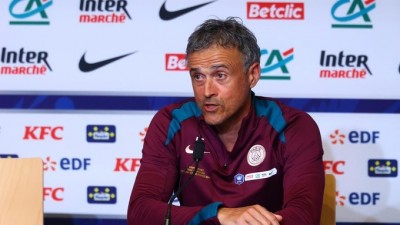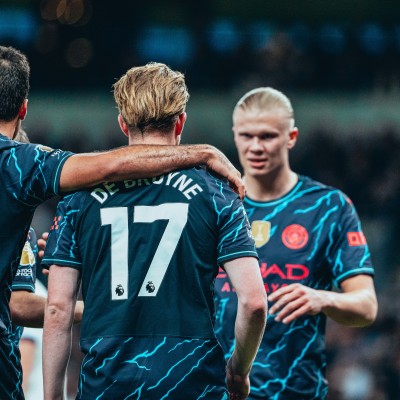When Luis Enrique walked into Paris Saint-Germain in July 2023, he wasn’t just inheriting a dressing room, he was inheriting a legacy of chaos, pressure, and unmet expectations. For over a decade, PSG had been defined by the star power of its roster, not the cohesion of its system. But in less than two seasons, Enrique has flipped that script. Under his watch, PSG have evolved from a superstar-reliant project to a well-drilled football team, perhaps for the first time in their modern era.
The Haunted Past: PSG’s Decade of Unmet Expectations
PSG’s Champions League obsession was no secret. Reporters didn’t waste time reminding Enrique of it before his first European game in September 2023. The inevitable question came: Can PSG win the Champions League?
“When a club is obsessed with something, it is never good,” Enrique responded with a tone of warning. “You have to have ambition, but obsession doesn’t work.”
It was a subtle jab at a decade of frantic spending and managerial turnover. The club’s leadership had long confused talent accumulation with team building.
Despite bringing in legendary names like Lionel Messi, Neymar, Sergio Ramos, Dani Alves and Keylor Navas, they never managed to build an identity. Thomas Tuchel, who took PSG to their first-ever final in 2020, described his time there as more about “politics” than coaching. The German was sacked some months after that final.
His successors, Mauricio Pochettino and Christophe Galtier, fared no better, each undone by the weight of expectations and fractured dressing rooms.
Enrique’s First Step: Dismantling the Dynasty
Luis Enrique’s vision began with subtraction, not addition. Neymar, Messi, Sergio Ramos and other poster boys were shown the door. In their place came a younger, more dynamic crop of players. The recruitment strategy was deliberate: buy young, buy talented, and buy French when possible. Of the 13 new arrivals, 10 were aged 26 or younger. Nearly €350 million was spent, not to build a spectacle, but to build a team.
The overhaul was fast, and surprisingly effective. PSG went unbeaten away from home in Ligue 1 during the 2023-24 season, a first in league history, even if the competition had shrunk to 18 teams. More importantly, they escaped a brutal Champions League group featuring the likes of Newcastle, Milan, and Dortmund, and went on to reach the semi-finals, their deepest run since 2020.
But even then, cracks remained. PSG were still heavily reliant on the brilliance of Kylian Mbappe, who scored eight goals, matching his best-ever Champions League tally. The rest of the squad contributed just 11 goals combined. Their attacking phases lacked dynamism in the first half of matches, often leaning on second-half surges powered by Mbappe’s explosiveness against tired defenses.
Life After Mbappé: A Catalyst for Collective Brilliance
When Mbappe’s long-anticipated move to Real Madrid was confirmed three days after PSG’s semi-final exit, it felt like the end of another PSG chapter. But remarkably, it was the beginning of a new one, arguably their most balanced yet.
In the void left by Mbappe’s 44 goals, a surprise figure emerged, in person of Ousmane Dembele. The winger, once criticized for his erratic finishing, blossomed under Enrique’s guidance. Moved centrally and occasionally deployed as a false nine, Dembele exploded with 33 goals across all competitions, a career high. Tactically, Enrique tweaked his role to allow him to exploit space, drop deep in buildup, and lead the press.
This evolution was emblematic of Enrique’s influence. He adapted his system to fit the squad’s strengths, rather than imposing rigid dogma. When Dembele dropped in, Hakimi overlapped wide, and PSG’s forwards swarmed the box with near-clockwork timing. Goals against Arsenal and Liverpool showcased the same attacking pattern, and it is a proof of a drilled, intelligent attacking identity.
The Pressing Machine: Enrique’s Tactical Masterclass Unveiled
Beyond personnel, Enrique transformed PSG tactically. The pressing structure, often a weakness in the past due to lazy forwards, became a weapon. PSG became one of Europe’s most aggressive teams without the ball.
They allowed four fewer passes before making defensive action compared to Galtier’s PSG and averaged five more tackles per game than the 2022-23 version, despite having more possession.
Mbappe’s departure ironically strengthened the press. For all his attacking brilliance, his defensive contributions were limited.
With a unified front line willing to defend, PSG’s press matured. From the group stage to the knockout rounds, Enrique gradually shifted from a man-to-man press to a more pragmatic zonal setup. In the quarters and semis, a 3-2-4-1 structure emerged.
Nuno Mendes sat deeper, wingers pressed full-backs, and Dembele led the press solo, slicing off passing lanes with surgical movement.
Even in possession, PSG evolved. Their reliance on crosses dropped, while through balls increased. The midfield was restructured to enhance press resistance.
Manuel Ugarte was dropped in favour of Fabian Ruiz in key games before his eventual move to Manchester United, and Joao Neves added dynamism.
The result? A PSG side capable of adapting, controlling games, and hurting teams in transition.
PSG’s New Collective Identity
Perhaps the most staggering stat is that only five players from Enrique’s first Champions League starting XI remain in the club’s current crop of stars. From the ashes of the previous cycle, a new PSG has risen, one that finally plays like a team, not a showroom.
Khvicha Kvaratskhelia’s January arrival provided an elite dribbler on the left, unlocking more space for Dembele.
Meanwhile Vitinha has flourished as a tempo-setting technician. Even players like Barcola and Lee Kang-in have played critical roles, rotating fluidly without disrupting the system.
It all reflects a culture shift, one that PSG president Nasser Al-Khelaifi publicly credited Enrique for in February 2025. That month, the coach’s contract was extended to 2027. It was a sign of rare stability at a club notorious for short fuses.
The Ultimate Test Awaits: PSG’s Dream of European Glory
Now, PSG are back to where they dreamed of being, the Champions League final. And fittingly, it will be played in Munich, the location of their heartbreak in 2020. The ghosts of that night, when Kingsley Coman struck against his hometown club, still linger. But this time, the story feels different.
There’s romance in the narrative, a club once lost in a fog of individualism now winning with collective effort. Only Marquinhos and the often-injured Presnel Kimpembe remain from that final squad. The rest are new, younger, hungrier, more aligned.
Luis Enrique was asked if this was finally PSG’s year. His reply was interesting – “I’m not a fortune teller,” he said. “The best thing is there is nothing special to prepare. We have got to this point based on the football we have played, now we need to keep that going. We can fulfil that dream.”
This isn’t just another PSG team with stars in its eyes. This is a team that earns its shine together.
And a win or lose in Munich, that is PSG’s biggest victory yet.








